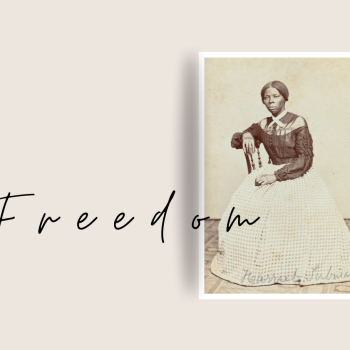By David French
 If I’ve heard it once, I’ve heard it a thousand times: When it comes to the role of government, many conservatives are hypocrites. We allegedly want a “small government in the economic sphere but an activist government on social issues.” According to members of the pundit class, this alleged contradiction plagues the conservative movement in multiple ways: by exposing our own hypocrisies, by alienating fiscal conservatives from social conservatives, and even (here’s the latest critique) by weakening the purity of the Tea Party movement.
If I’ve heard it once, I’ve heard it a thousand times: When it comes to the role of government, many conservatives are hypocrites. We allegedly want a “small government in the economic sphere but an activist government on social issues.” According to members of the pundit class, this alleged contradiction plagues the conservative movement in multiple ways: by exposing our own hypocrisies, by alienating fiscal conservatives from social conservatives, and even (here’s the latest critique) by weakening the purity of the Tea Party movement.
The contradiction and conflict have been repeated and discussed so many times that even many conservatives believe it -- accepting almost on faith the notion that there’s a fundamental contradiction between fiscal and social conservatism because, after all, social conservatism requires government intervention while fiscal conservatism gets government off our back.
But is that view correct? Are social conservatives really calling for a more activist government?
No, they are not. In fact, social conservatism is small government conservatism. Don’t believe me? Look at the key issues:
Life: No issue unites the Christian conservative base more than its opposition to abortion. It is often the issue for religious voters young and old. But are you for an activist government if you’re pro-life? Social conservatives want to ban government funding for abortion (sounds small government to me); they want more free speech in opposing the practice (starting to sound libertarian there); and they want to see the return of actual federalism and democracy in determining the legality of the practice itself. If Roe is struck down, the issue goes to a vote -- and if there’s one thing the Tea Party stands for, it’s greater power to the people.
Liberty: Everywhere you look, religious conservatives are on the side of greater individual liberty. Whether the issue is property rights (yes, I want to have a Bible study on my own property), economic liberty (I don’t want the state telling me that I have to photograph a same-sex wedding ceremony), free speech, or freedom of conscience, religious conservatives are at the absolute cutting edge of liberating the individual from the yoke of the state. The Left -- the same people who allegedly oppose “legislating morality” -- tells Christians how they can use their land, how they must educate their children, who they must do business with, and when they can speak.
Marriage: This one is easy. Leaving aside for the moment the esoteric debate as to whether the state should define marriage at all (that shipped sailed a few centuries ago), the actual debate revolves around definitions and implications. The state is going to define civil marriage, and the battle is between social conservatives who think the definition should stay the same and social leftists who think it should change.
Which of these positions is activist? Which of these positions ultimately requires a greater level of state intervention? As the definition of marriage changes, religious individuals and organizations have faced and will face even greater threats to their own liberty as the state extends its nondiscrimination regulations deep into the heart of religious practice.
The issues above represent the core issues of religious conservatism in America, and in each of them, the social conservatives stand against government activism -- especially federal government activism. Striking down Roe unleashes democracy. Home schooling is the ultimate expression of dissent against the vast public school monopoly. Opponents of same-sex marriage stand against top-down judicial impositions and against a vast new wave of intrusive regulations of Christian speech and behavior.
This consistency plays out in politics, as there is enormous overlap between social conservative superstars (see National Right to Life’s pro-life scorecard) and champions of fiscal conservatism (see the Club for Growth’s own scorecard on economic issues). A true fiscal conservative/social liberal is very, very hard to find. In fact, outside of the academy and the beltway, fiscalus exclusivus is a nearly extinct political creature. Why? Because fiscal and social conservatism are internally consistent and philosophically coherent.




